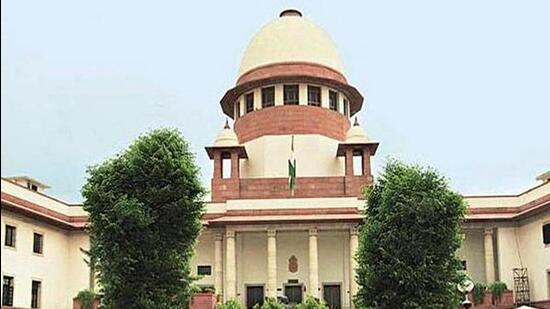Anti-conversion laws: SC to hear on Friday Jamiat plea for clubbing pleas in HCs
In its plea filed through advocate MR Shamshad, the Jamiat’s Gujarat wing said the laws are violative of core fundamental values such as secularism, fraternity, dignity, and privacy
The Supreme Court will hear on Friday a petition of Jamiat Ulama-e-Hind for the transfer to the top court six pleas in high courts challenging state anti-conversion laws.

A bench of Chief Justice of India (CJI) Dhananjaya Y Chandrachud and justices PS Narasimha and JB Pardiwala ordered the listing of the Muslim body’s petition while hearing a batch of pleas questioning the state laws and a public interest litigation seeking a law to curb alleged forced conversion.
“We will hear the entire bunch of matters on Friday. By then, the transfer petition will be numbered.”
In its plea filed through advocate MR Shamshad, the Jamiat’s Gujarat wing said the laws are violative of core fundamental values such as secularism, fraternity, dignity, and privacy. It sought the transfer of cases pending in high courts in Gujarat, Himachal Pradesh, Jharkhand, Karnataka, Madhya Pradesh, and Uttar Pradesh.
“The provisions in the Acts passed by different states raise the common issue of constitutionality and legality of the provisions of laws to be tested within the ambit of Articles 14 [equality], 15 [non-discrimination], 19 [free speech], 21 [life and liberty] and 25 [freedom of religion].”
Attorney general R Venkatramani opposed the plea. “The high courts should hear them as these are state legislation. I may have some serious objections.”
The bench allowed the Union government to raise all objections on Friday.
For Jamiat, senior advocate Kapil Sibal submitted that since his client is not a party in each high court, the Supreme Court registry did not accept the petition unless it received a no objection from all petitioners before each court.
The Union government objected to another petition of social activist Teesta Setalvad-led NGO Citizens for Justice and Peace (CJP) challenging the constitutional validity of anti-conversion laws in Chhattisgarh, Gujarat, Haryana, Jharkhand, and Karnataka. The NGO earlier filed a petition challenging similar laws in Uttar Pradesh, Madhya Pradesh, Uttarakhand, and Himachal Pradesh.
Solicitor general Tushar Mehta objected to the maintainability of the petition and sought permission to show a short affidavit indicating the Union government’s objections.
The affidavit, which will be considered on Friday, raises doubts over the credential of the petitioner. It accuses the NGO of selectively taking up public causes at the behest of some “selected political interest” and earning out of such activity.
“Under the guise of serving the public interest, the petitioner deliberately undertakes and consciously and surreptitiously espouses divisive politics in an attempt to divide the society into religious and communal lines,” the affidavit said.
CJP’s lawyer CU Singh questioned how could an affidavit be entertained before notice is issued on the petition. He said using the earlier anti-conversion laws, some states have enacted “more virulent” laws which have created a grave situation as people cannot get married.
Advocate Vrinda Grover mentioned the National Federation of Indian Women’s plea seeking to highlight the impact of these laws on women.
Another justice MR Shah-led bench in November heard the matter related to alleged forced religious conversion and challenge to religious conversion laws. It observed that if the allegation of forced conversion is found to be true, “it is a very serious issue” that may ultimately affect the security of the nation and violate citizens’ right to freedom of conscience and right to freely profess, practice, and propagate religion.
The observation came while the bench was hearing Bharatiya Janata Party leader Ashwini Kumar Upadhyay’s plea.
“Everybody has a right to choose religion but not by luring them. If you want to help a particular community, you may do it for charity. That is welcome. But not for any other purpose,” the bench said.
Christian, and Muslim organisations and individuals sought intervention in the proceedings alleging scurrilous charges were levelled against their communities without any factual basis. They objected to Upadhyay’s plea when a complaint of alleged hate speech is pending against him in Delhi.
On January 9, the court changed the case title to “Issue of Religious Conversion”.
The government supported Upadhyay’s petition claiming that anti-conversion laws are “necessary for protecting cherished rights of vulnerable sections of society including women and economically and socially backward classes.”
Get Current Updates on India News, Lok Sabha Election 2024 live, Infosys Q4 Results Live, Elections 2024, Election 2024 Date along with Latest News and Top Headlines from India and around the world.



